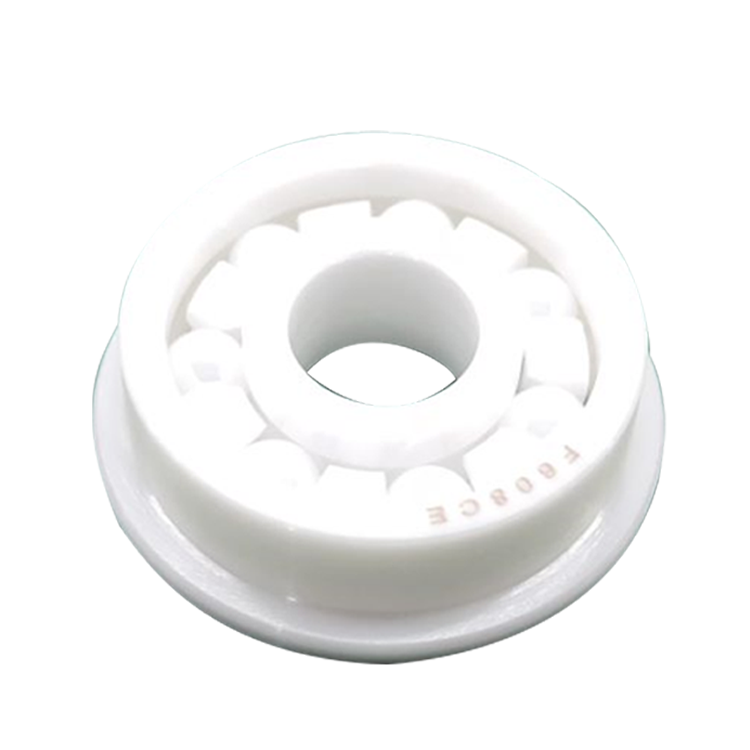Welcome to Tarso, professional special bearing manufacturer
Selecting a Ceramic Bearing Part One of the most import […]
Selecting a Ceramic Bearing Part
One of the most important things to consider when selecting a ceramic bearing part is the surface finish. While you might expect a ceramic ball to be smoother than steel, this is not always the case. Note the grinding marks on the bearing's surface.
Steel bearings are made with hardened steel balls and an outer race. They are often interchangeable. Other differences between ceramic and steel bearings are the contact points. Steel bearings are commonly used in high-speed applications. Their major advantage is that they offer long-term reliability. They also offer superior wear resistance and minimal maintenance.
Most bearings come packed with lightweight oil or grease. This prevents the two parts from free-spinning. However, this lubricant can thin out over time. As the bearing is used, it will eventually lose its lube and become looser. Over time, this will eventually cause the bearing to break down.
While ceramic bearings could have higher performance, this is not yet proven by testing. Some companies make hybrid ceramic bearings that are designed to work well in a variety of applications. However, some manufacturers are not rushing to go fully ceramic because of cost.
There are many types of ball bearings. You can find them in many different types of appliances. You can even find them under your workbench or in your refrigerator. They are available in a wide range of sizes, from 2,000 to three. When selecting a ceramic bearing, be sure to read the material's tolerances. This will determine how accurate it is.
ABEC standards dictate the range of accuracy a bearing can meet. They are used to rate the accuracy of major bearing dimensions, such as diameter, mounting dimensions, and geometry. A higher ABEC number means a tighter tolerance. It also increases a bearing's radial and axial load carrying capacity.
When choosing a ceramic bearing, it is important to consider the purpose of its use. For example, a ceramic bearing for a motorcycle is not a high-speed bearing. It is also important to keep it clean. Regular maintenance will extend its life. This is because the grease helps in dissipating heat and prevents dirt from accumulating inside.
Ceramic bearings are expensive and need regular service to keep working properly. For those who don't want to spend money on a ceramic bearing, a high-quality standard bearing is the better choice. However, riders should make sure they have the time and knowledge to service them. Using good quality standard bearings will help them last longer and be more durable.
Basic bearing seal technology has not changed dramatically since the sixties, and largely depends on costs. Most improvements are made in sealing materials or geometrical differences. Most of the large bearing manufacturers produce thousands of bearings every second. Most of them are made in one site, and the basic bearing seals are almost always made of steel.

ZrO2 flange deep groove ball bearing
|
Chemical medium |
Molecular formula |
Contents |
Temperature |
Anti-corrosion property |
|
AceticAcid |
CH3COOH |
80% |
Boiling |
Excellent |
|
Anhydrides |
(CH3CO)2O |
50% ~ 80% |
Boiling |
Excellent |
|
Water+Sodium chloride |
H2O+NaCl |
|
Boiling |
Excellent |
|
carbonic acid |
H₂CO₃ |
|
Boiling |
Excellent |
|
copper |
CU |
|
1400℃ |
Excellent |
|
food acid |
|
|
Boiling |
Excellent |
|
Juice acid |
|
|
Boiling |
Excellent |
|
hydrochloric acid |
HCl |
35% |
25℃ |
Good |
|
hydrochloric acid+Ferric oxide |
HCl+Fe2O3 |
|
Boiling |
Good |
|
Hydrofluoric Acid |
HF |
|
25℃ |
not resistant |
|
Nitric acid |
HNO₃ |
83% |
25℃ |
Excellent |
|
Nitric acid+hydrochloric acid |
HNO₃+HCl |
80%+20% |
Boiling |
Excellent |
|
Phosphoric acid |
H₃PO₄ |
85% |
25℃ |
Excellent |
|
Potassium hydroxide |
KOH |
|
25℃ |
Excellent |
|
Sodium Carbonate+Sulfuric acid |
Na2CO3+H₂SO₄ |
18%/20% |
25℃ |
Excellent |
|
Sodium hydroxide |
NaOH |
50% |
Boiling |
Excellent |
|
Sulfuric acid |
H₂SO₄ |
20% |
25℃ |
Excellent |
|
Sulfuric acid |
H₂SO₄ |
80% |
50℃ |
Good |
|
Aluminum |
AL |
100% |
700℃ |
Excellent |
|
Zinc |
ZN |
100% |
500℃ |
Good |